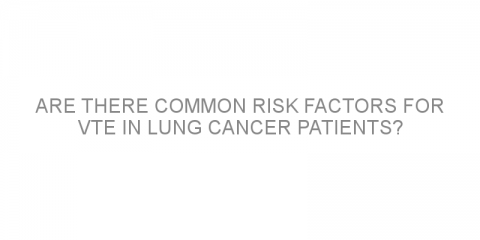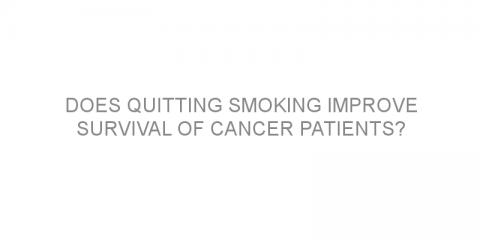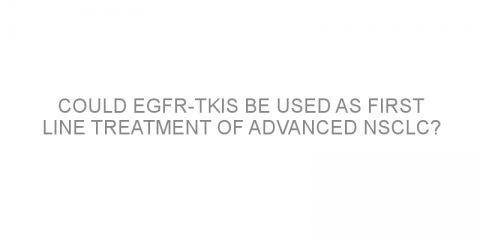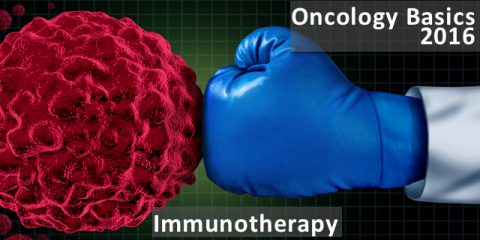In a nutshell This study aimed to assess whether surgery is beneficial for patients with advanced stage 4 NSCLC that has spread to other parts of the body. The authors concluded that for these patients, surgery resulted in longer survival time compared to those who did not undergo surgery. Some background For many patients with non-small cell lung...
Read MoreLung cancer Posts on Medivizor
Afatinib versus erlotinib: Comparing two second-line treatments for advanced squamous cell carcinoma
In a nutshell This study compared the safety and effectiveness of afatinib (Gilotrif) and erlotinib (Tarceva) as second-line treatments for advanced squamous cell carcinoma (SCC). Authors reported improved survival and disease progression with afatinib compared to erlotinib. Both treatments were associated with a good safety profile. Some background...
Read MoreSide Effects of Chemotherapy for Cancer: Infographic
Chemotherapy Side Effects Resources Cancer survivorship is impacted by side effects of treatment. Survivorship health information abounds on Medivizor: from the post on neuropathy to the new guidelines that have been created for physicians to care for the side effects for breast cancer survivors. In addition, the Medivizor Library provides a...
Read MoreAre there common risk factors for VTE in lung cancer patients?
In a nutshell This meta-analysis aimed to identify risk factors for venous thromboembolism (VTE) in patients with lung cancer. The authors concluded that patients with adenocarcinoma, advanced disease and undergoing chemotherapy were at a higher risk of VTE. Some background Venous thromboembolism (blood clots in veins) can occur at a higher rate...
Read MoreDoes quitting smoking improve survival of cancer patients?
In a nutshell This article aimed to assess whether stopping tobacco use in cancer patients would lead to better survival rates. The authors concluded that patients who stopped tobacco use had longer survival and lower death rates than those who did not. Some background Cancer patients who smoke tobacco may experience worse outcomes than those who...
Read MoreTreating NSCLC in clinical practice
In a nutshell This review aimed to provide updated guidelines on treating non-small-cell lung cancer depending on the genetic profile of the cancer. The authors conclude that in certain types of cancers with genetic mutations (changes) drugs aimed at the specific mutation could be more beneficial than chemotherapy and other treatments. Some background...
Read MoreTargeted therapy for BRAF-mutation-positive advanced NSCLC
In a nutshell This trial aimed to determine whether dabrafenib (Tafinlar) was effective and safe in treating BRAF-mutation-positive advanced NSCLC. The authors concluded that dabrafenib had some anticancer ability and tolerable side effects compared to other treatment options available for this type of cancer. Some background Genetic mutations...
Read MoreCould EGFR-TKIs be used as first line treatment of advanced NSCLC?
In a nutshell This trial aimed to assess the effectiveness of using erlotinib (Tarceva) to treat EGFR-mutation positive advanced non-small-cell lung cancer. The study concluded that erlotinib had an overall survival (OS) benefit comparable to first line chemotherapy. Some background Genetic mutations (changes) in the epidermal growth factor...
Read MoreAfter Cancer Treatment: Living Out The Cure
When you’re 8 years old, jumping rope, playing dolls, swinging on swing sets and doing homework are girlhood pursuits. Discovering “Lumpy Luey” in your left chest wall isn’t. In 1978, Stephanie Dodds’ way of coping with the diagnosis of Ewing Sarcoma was to give it a name and focus on “getting rid of it.”...
Read MoreOncology Basics 2016: The Immune System and Immunotherapy
Oncology Basics 2016 continues with a look at the immune system and immunotherapy. As described in a previous post, one of the regulators of cell division and proliferation is the immune system. Harnessing the power of the immune system to attack and destroy cancer cells is a promising area of oncology research. Immune System Cells Below is a graphic to...
Read MoreOncology Basics 2016: Genes and Cancer Treatment
In Oncology Basics 2016 part 1, we examined the elegance of the cells that make up our body. In Oncology Basics 2016 part 2, we explored what holds the instructions for life–DNA–and the special processes of self-replication and transcription that are used to pass on and translate those instructions. Now we will try to connect the...
Read MoreUpdated guidelines for the treatment of stage IV NSCLC
In a nutshell The American Society of Clinical Oncology (ASCO) gathered a panel of experts to update guidelines on systemic therapy (such as chemotherapy) for stage 4 non-small cell lung cancer (NSCLC). They provided updated guidelines with recommendations for first, second and third-line systemic therapy as well as targeted therapy. Some...
Read More












